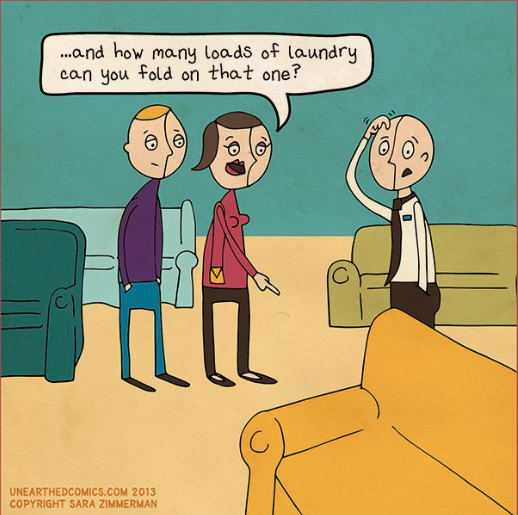Ok, I am going to keep this short (as I can anyway) because I really want to hear from YOU.
Full disclosure: I have no letters after my name. I have a couple of last names I have collected over the years….if that counts for anything but am not a licensed interior designer, nor a certified kitchen designer nor do I claim any other appellations. (I really am thinking about putting DGD (click here to find out what that means) after my name and then see how many people ask me about it…I wonder if this is illegal…?)
I even confess to all that I switched majors in college from Interior Design to Fine Arts. Why? The school of interior design bored the hell out of me. I actually think my fine arts studies enhance my design abilities and certainly has a strong relevance to my concept of space. But, same college of studies but different degree. Does it matter?
I am honest to all clients and to anyone else who cares. I simply say, please look at my portfolio and call any of my references. My work speaks for itself and my clients are gracious enough to add the postscript.
To me, this is what matters but I realize to some, this is not enough.
In Florida, you cannot practice interior design for commercial projects unless you are licensed by the state and have passed the NCIDQ exam. I have a very talented Interior Designer who works with me who is licensed. But, she tells me all the time that what she learned in school is NOT what makes her good at what she does. I think no one will argue much that this is true of many professions.
I really wish I had trained to be an architect. But, I paid for my own education and I was lucky to carve out an undergraduate degree while working full time.While I fully support anyone at my shop who wants to pursue more education and to get certified by the NKBA, I have chosen not to pursue it. I think it is a fine program but I simply do not need it. And honestly, when would I have the time to study then take the test?
And ok, here is the bada bing
I simply think there are really talented design folks out there who maybe don’t have any sort of formal degree! Oh My! There I said it! The question is who is the right designer for YOU and your specific needs?
Homeowners need to vet their professionals!
I fully realize that designers often are drawing plans and making decisions that impact building codes and safety…and then sometimes are simply putting really great rooms together. Here is what I think: a person considering hiring a designer of any sort, should: Check out their portfolio, interview them with specific questions to be answered about how they do business,their experience with similar projects and how they charge for their services, google them, look them up in their local clerk of courts to make sure their business is sound, and then talk to their previous clients. Not necessarily in that order!
I have met many designers who are licensed and have passed the NCIDQ who were not fit to design a dog house. And, I have met many certified kitchen or bath designers who do not have a clue about executing a kitchen or bath project from start to finish…but can pass a test.
And note: I am a card carrying member of the NKBA and sit on our local board.
I say the proof is in the pudding. Agree or disagree? Comment below.
P.S. Check out my exclusive resources to help you become a successful interior designer here (they’re much cheaper than a college education, I promise).






23 Responses
great post, I agree 100%….the proof is in the pudding!!! On paper I should be flipping burgers but through good luck and effort have managed to get a lot of great experience that has been more beneficial to me than a college degree. (yeah, I’m including you!!!) I would love to read what questions YOU think a client should bring to a meeting with a designer.
Cara: You forget HARD WORK! Not everyone seems to get this important component to success! And you are a hard worker!
I was implying hard work when I said effort!!!!
😉
you can be a LOUSY designer with all kinds of degrees and certifications. they mean nothing if you don’t have talent- it’s the talent and experience that count in my book, so i heartily agree with the premise of your post.
You make some excellent points. I agree that qualifications are not the be all and end all. I’ve studied interior design and also fine art but experience and a good eye for design can’t be learnt.
Somewhere along the line we became a degree-happy world in which everyone is thought to need a college degree. More than that, it is a magic talisman; got a problem, apply a degree; a degree will cure anything.
I do think a formal education helps in that it introduces students to subjects they might not otherwise have encountered. I do not think it produces graduates who are instantly qualified to do whatever they majored in. Even a medical doctor follows his formal training with an internship.
Relative to the arts, though, I am not sure that a college degree makes an appreciable difference, simply because of the many variables involved in such a course of study and the woefulness of the instruction itself. In an earlier comment on your blog site I stated that I took a design class that taught nothing at all about design, the instructor taking the view that, because there was no ONE way to design, that he could not teach design; he could only give us the history of it.
I encountered the same situation in writing. I’m sure there are good writing instructors out there, but I never found one. I did come across quite a few good articles over the years, but in the main, I am self-taught. I attended a junior college for a few years, but I never did take a degree. One of the reasons I decided not to take a degree was because I honestly felt I was learning more about the discipline on my own.
The fine arts—be it writing, musical composition, drawing, painting, sculpting, or any of the many other mediums I could rattle off—all have certain characteristics in common. First, sadly, it is mostly a talent one is born with or is not; I say sadly because there are those who desperately want to succeed in these endeavors who eventually come to the realization that they simply do not have the talent for it. The other main element, for those who are successful in it, is passion, because it’s passion that causes one to do all the work that is necessary for success in any of these fields. Who really gets excited about grammar? Well, that would be me, because it’s part and parcel of writing. Who wants to spend day after day at a piano doing scales? Well, that would be anyone who has the talent and the passion for a career in music. Who opens a book of fabric samples and gets a little thrill, thinking about the uses to which one of those will soon be put? Well, that would be anyone who designs for a living and does it well.
But where, in all of this, is a college course that covers talent and passion? What college course prospectus points out the necessity of these elements? But how in the world is anyone going to succeed in the arts without them? And the proof of that is easily established. Which of the designers who will surely chime in on this blog will say that, really, it’s just a job, but it pays the rent?
I have a niece who graduated Cum Laude with a Fine Arts Degree from Cal State Fullerton. She wants to be a glass artist, and this is the first step. But I keep telling her that’s all it is, the first step, simply because it gives her a credential to wave around. If she is really serious about pursuing her discipline, she will have to pay her dues and spend every available hour in the shop developing the techniques and the vision to produce works of art that just take your breath away. Because, in the end, that’s what people will buy, not her degree.
The same is true of a designer. She either has the chops for it or she doesn’t, and the proof of that is in her portfolio. Degrees and certificates don’t design; people with passion do.
When this credential subject came up the other day, I figured you’d devote an upcoming post to expounding on it. And since I find myself in the same row as your seat (no creds except street variety), I have to agree that if you can do the work, you can have the job.
Unfortunately, lobbies, lawyers, and some poor examples have contributed to constricting the playing field in some areas, through licensing, laws, and other hoop-jumping requirements, to “protect” the unsuspecting public. Not completely out-of-line either – I guess I’m lucky to live in such a “lawless” state in that respect, but it can be a double-edged sword (for both parties).
I don’t need no stinkin’ credentials!
Some thoughts on the topic:
In the Supreme Court decision Griggs vs. Duke Power Co. (1971), employment tests were essentially outlawed. Since that time the system that has evolved is one of college degrees and other credentials as a signalling device to potential employers of our abilities and worth.
K&BDN used to run an annual salary survey. Non-certified designers made the most money. By far. They stopped running that survey a couple of years ago. I think some CKD probably put the kabosh on it. This salary evidence supports my bias: Good or bad, it ain’t a design until its sold.
Go to an NKBA chapter meeting. I quit doing this a long time ago. I used to go, when I had my own showroom, in search of possible employees. Never found one amongst the gaggle of CKD’s.
So the CKD as a signalling device for potential employers is weak. It is also weak for potential customers. I can count on two fingers the number of times I’ve been asked by a potential client if I have any certifications.
Here in Texas, where you pretty much don’t need a license for anything, getting and keeping credentials takes time away from your work, necessarily raising the costs of doing business. Something most of the competition here does not bother with.
I received my CKD because it lent some credibility, especially when I was younger. The CID accreditation was good for keeping current with codes, and at one time, might have been necessary for practicing in California. Does that make me fancy? Pfft. You do fancier work than me.
When I first started in the field, there was nothing for credentials. If I had to do it over again, I’d get my B. of Int. Architecture. I still might one day, just because.
It’s like every field. Eventually you rise or fall on your own merits. I think the people who really lose out are the ones who stop learning.
hey kelly…maybe you and I can get our architecture degrees together??? I would agree…If I had to do it over again..that is what I would do too…the CKD deal is a good thing but sadly I do run into NKBA members who think they are more “experienced” than me because they have it…but those people are the ones that probably would be that way regardless.
Here in Florida, there is a natural polarization because the Interior designers who are licensed lobby hard to keep any other designer from practicing..including CKD’s. And, the tough thing is..there are not enough of them to even give internships ( which are required to take the NCIDQ and be licensed) to graduating students! Go figure that
I read quite a bit about the situation in Florida in a blog that ran last year, if memory serves. Since then I have encountered people who really want to get a State board for cabinetmakers in California. “If we do that,” Mr. Filthy-Grasping-Capitalist-Pig said at a meeting I attended, “we can elevate the standards of the profession, and if there’s not as many people doing it, we can charge more for our product. That way guys like me don’t have to compete with those clowns working out of their garages!”
My wife has been a Human Resources Manager for over twenty years, and everywhere she goes, they love her. But she still has a hell of a time getting in the door because she does not have a college degree, because she has been too busy making a living at it to get credentialed in what she already knows how to do. And it gets worse. There is a professional group (natch) that sells credentials for a thousand dollars a pop. Oh, there’s more to it than that, of course. You have to take the test and so forth. But, really, that’s the bottom line on that sort of thing. “Pay me a thousand and I’ll tell everyone you are now qualified to do what you’ve done for a living for the better part of your life!”
Really, it’s extortion. I say fight those clowns tooth and nail, and if you ever need a well-written, hell-raising flyer or two, all you have to do is ask.
Cheryl & Kelly -Unless you want to break out of residential design, take the NCIDQ tests and become a CID so you can work on commercial buildings, I don’t think you would find the hassle of getting a degree in Interior Arch. worth the investment. Had I known I was going to end up designing kitchens, I certainly wouldn’t have spent a zillion dollars and six years of my life when I could have done it for much less. There are simply much easier ways to get one’s foot in the door of the K&B profession. The only difference between my degree and an architect’s is that I didn’t have to take general physics and I don’t have to get licensed to practice in some states. In California you do. Other states, I don’t know. Where I in your shoes, I would probably go for a regular architecture degree so you can design structural changes on residential buildings which would be an asset for a kitchen design firm.
What I find lacking in all programs (including the one I went through) was sales and general business training. Check out Bob Borson’s blog Life of an Architect http://www.lifeofanarchitect.com/architectural-fees-part-1/
He sums it up pretty well in his introduction. Architects (and Interior Architects) are taught very little regarding how to close a sale and to manage business. I’m guessing that must be true to some extent through NKBA training as it always appears in the ads looking for kitchen designers that they be SALES people first and foremost. Generating leads and closing sales is still the most difficult thing for me to do (there I’ve said it!). And I’ll bet it is for a lot of others in this business too.
good points Pam…think the NKBA needs a reality check on their offerings…I can help you with sales and marketing any time. I was a sales manager for two large radio stations in southern california before I reincarnated myself….and was quite good at it. I love the sales and marketing almost as much as the design aspect of running my business!!
Judging from the recent design contest for the NKBA this year, they need to visit the portfolios of those they choose to judge. I did this last year and expected good stuff and was shocked at the crap….and these are people who are deciding on winning entries?? It is way too much money at stake. The NKBA says if they are certified then they are suitable judges ..NOT NOT! They really need to take another look at their judges. Looking at this year’s winners…would say the same problem exists.
Cheryl,
You make valid points.
This happens across disciplines. Yes, there are brilliant people teaching, designing , drawing, etc… without a formal accreditation. The reverse is also true: There are people with impressive credentials but somehow not capable enough.
I like to think these are the exceptions, not the rule.
A formal accreditation adds different things to different people. In your case, it will not make you any smarter at what you do but it will bring certain intangible benefits. The biggest one being that when a competing designer’s pudding is as good as yours, you will win the customer because you have the formal accreditation and the competing designer does not.
Miguel: I continue to educate myself constantly. It is my personality type as well as good for business. But, I just do not seem to have the problem of losing work to someone with more credentials than I have….in the final analysis, the majority of people want design that works and is well executed….not so much to be able to brag about the blah blah who did the work. Maybe one day it will be an issue….but I will probably be retired by then!
I have been in the design business for over 25 years. Don’t even remember how or why I branched out into Kitchens and baths. Just something I am good at. Love to Cook, Love to design, Love wood working. Cabinet design is as close as I will come to furniture design. (My grandfather refinished antique furniture after he retired and I spent many a happy time with him as he taught me about wood.) I agree that it takes a certain passion to be a designer. This along with talent can’t be taught. A lot of the greatest designers of all times only went to the school of hard knocks. I think it is crazy to require designers to have some kind of certificate that says they can pick out a color or fabric. I have been lucky enough over the years that my work and work ethic speaks for itself. I can say that I have only lost two jobs in all of these years because I didn’t have some letters after my name. And may I add these people did not et what they paid for. They paid much more than those designers were worth.
I agree with you sue! I let my work speak for itself. And my client’s. That is usually enough for anyone.
Joseph: so true so true!
I may take you up one day on the flyer though!
Pam: I think you may have identified my 3rd career…being a sales and marketing person for design businesses! I help many small businesses around here with things like that just because I enjoy it and LOVE the entrepreneurial spirt alive and well in America! I do not think there are that many people who are comfortable in the sales and marketing arena in our business.
I am going to have to come back and actually read the comments (I know there is good stuff in there) but I wanted to drop this note in (everyone who reads this post is already probably thinking it, they are just to scared to point it out…)
It’s actually “the proof in the pudding is in the eating”. There, I said it, Whew – I feel better already. I will also get this one out of the way because it’s always close behind (preemptive strike) –
People always say “you can’t have your cake and eat it too” but you can, I have a cake and I am going to eat it. It should be that “you can’t eat your cake and have it too” (because you ate it, remember?) Sorry I hijacked your comment box here, I’ll make it up to you.
Oh Geesh Bob! I just left off that last little bit! Have you not heard of artistic license??? ok so when you eat the pudding or in my case look at my website, then there is the proof! Voilà!!
Here, hear! I agree with Kelly that the ones who lose are the ones who stop learning.
I obtained my BA in something else entirely. I found my life love in remodeling our rental houses with my Pop. I had formal design training and was bored out of my mind with the elements of design classes. I excelled in my drafting classes and practical classes but became frustrated because only one class was offered in the fourth year on kitchen and bath design. I found a great entry level job in a remodeling company, worked my way up and learned everything I could about kitchen and bath design. I have no regrets in not completing my formal design training. I never wanted to design for commercial projects. I feel my practical on the job training gave me more education and experience than I ever received from my formal design training.
hi,
this post is so amazing and interesting to read this kind of post ….
Thanks For Your valuable posting, it was very informative.I am working in Office Interiors in chennai